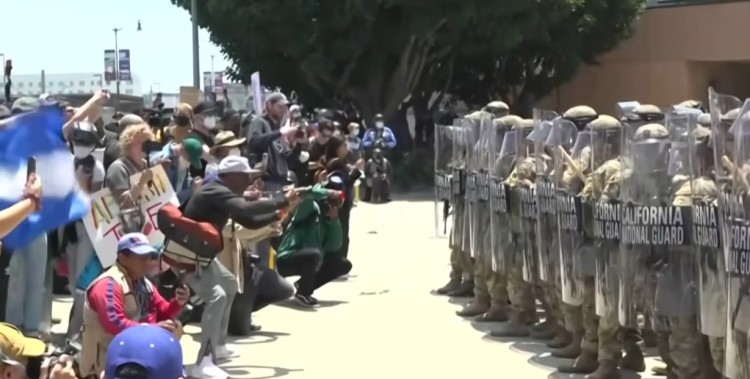The Pentagon’s decision to reduce the troop presence follows weeks of legal challenges and public demonstrations
Mayor Karen Bass celebrated the withdrawal of approximately 2,000 National Guard troops from Los Angeles on Wednesday, attributing the decision to the city’s unified resistance against their deployment.
The Pentagon announced Tuesday that half of the 4,000 National Guard troops stationed in Los Angeles would be released from their duties, following what Pentagon spokesperson Sean Parnell described as a “federal protection mission.” Parnell credited the troops with helping to curb “lawlessness” in the city.
In a statement, Bass emphasized the role of community action in securing the partial withdrawal. “This happened because the people of Los Angeles stood united and stood strong,” she said. “We organized peaceful protests, we came together at rallies, we took the Trump administration to court — all of this led to today’s retreat.”
Bass vowed to continue advocating for the city, stating, “My message today to Angelenos is clear — I will never stop fighting for this city. We will not stop making our voices heard until this ends, not just here in LA, but throughout our country.”
The deployment of National Guard troops to Los Angeles had sparked widespread controversy, with critics arguing it was an overreach of federal authority. The Pentagon’s decision to reduce the troop presence follows weeks of legal challenges and public demonstrations.












